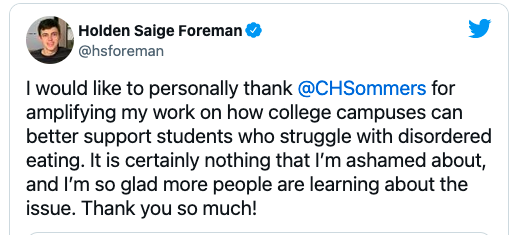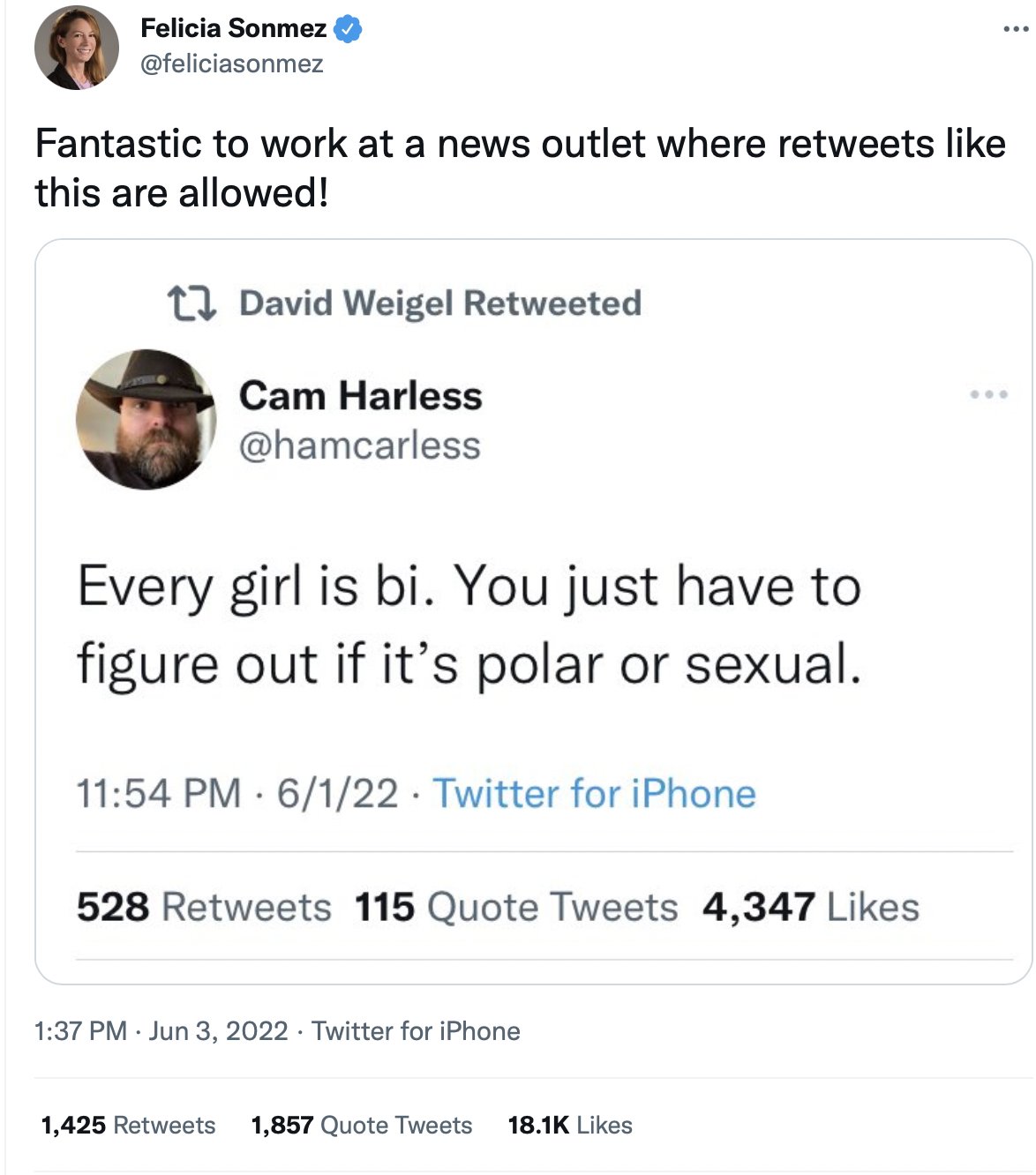
This past week’s Twitter spat featuring several Washington Post employees was a gold mine into the mindset of the ultra-therapeutic “me” culture which is often cultivated in our universities.
In a nutshell, after Post reporter Felicia Somnez publicly ripped her employer for allowing fellow reporter Dave Weigel to allegedly get away with retweeting a “sexist” tweet, the paper ended up suspending Weigel for a month without pay.
This happened around the same time that ultra-narcissistic Post tech reporter Taylor Lorenz once again was involved in controversy, this time involving accusations she lied about contacting sources for one of her stories.
But the coup de grâce, so to speak, came when a Post software engineer named Holden Foreman (pictured) chimed in via a lengthy Twitter thread to defend Somnez (and in other tweets, Lorenz) even though a reasonably rational person could see they were clearly in the wrong.
Foreman looks like he could be a high school freshman; indeed, just last year he was a student at Stanford University. And last August, he took to the student paper Stanford Daily (which has a predilection for publishing piddly student complaints) to rip the university for not catering to (no pun intended) his “disordered eating.”
MORE: The Peter Pan Generation
 Complete with a trigger warning (“This column contains references to disordered eating”), Foreman’s piece noted that his alleged malady — “a compulsion to eat less than needed when [in] either in social settings or when [one has] trouble estimating the amount of food [they’re] consuming” — still remains undiagnosed.
Complete with a trigger warning (“This column contains references to disordered eating”), Foreman’s piece noted that his alleged malady — “a compulsion to eat less than needed when [in] either in social settings or when [one has] trouble estimating the amount of food [they’re] consuming” — still remains undiagnosed.
“In theory, Stanford’s dining halls present students with the opportunity to eat as much as they need given its buffet format,” Foreman wrote. “Yet students like me may struggle to take enough of any of the available food when they are charged with portioning it themselves.”
If this doesn’t already sound farcical enough, Foreman followed up with several suggestions for Stanford to coddle his alleged needs, such as “educat[ing] the student body regarding disordered eating.” He also noted the university did contact him regarding his condition, but he never followed up: “Despite my struggles, I never sought help with my disordered eating from Stanford. But it’s not fair to place the blame squarely on my shoulders […] the fact that [Stanford’s] email was the only dedicated outreach, especially for someone with a history of disordered eating, is deeply concerning.”
So … Foreman didn’t budge an inch when Stanford reached out to him … and it’s Stanford’s fault.
Where does this sense of entitlement come from? Foreman sure seems like a bright enough guy, but … has he ever been told “no” in his life?
In my senior college year, I used to get uptight going to the student gym to work out because many college athletes hung out there. It was intimidating, as I felt the need to “measure up” to my 20-something behemoth peers. Eventually I got myself some free weights to keep in my dorm room so I didn’t have to go to the gym.
What never occurred to me was to ask The Review if I could write an op-ed about how the university bore much of the responsibility for my anxiety (“Why wasn’t there a gym just for non-college athletes? Where was the outreach?”). Because that would be ridiculous.
The times sure have changed:

MORE: To reverse snowflake syndrome, young people must be taught to ‘embrace work pain,’ senator argues
IMAGES: Shutterstock.com; Glenn Greenwald, Holden Foreman/Twitter screencaps
Like The College Fix on Facebook / Follow us on Twitter








Please join the conversation about our stories on Facebook, Twitter, Instagram, Reddit, MeWe, Rumble, Gab, Minds and Gettr.